- Home
- Charles L. Grant
The Universe of Horror Volume 1: The Soft Whisper of the Dead (Neccon Classic Horror)
The Universe of Horror Volume 1: The Soft Whisper of the Dead (Neccon Classic Horror) Read online
The Soft Whisper of the Dead
by
Charles L. Grant
Necon Classic Horror #20
Cover by Jill Bauman
A digital edition published by
Necon E-Books at Smashwords
This Edition Copyright 2012 Kathryn Ptacek
Cover Copyright 2012 Jill Bauman
This ebook is licensed for your personal enjoyment only. This ebook may not be re-sold or given away to other people. If you would like to share this book with another person, please purchase an additional copy for each person. If you’re reading this book and did not purchase it, or it was not purchased for your use only, then please go to Smashwords.com and purchase your own copy. Thank you for respecting the hard work of this author.
For Alan:
In spite of the Irish,
And because of the advice, the affection, and the late night calls
That taught me what it was like not to be alone.
Table of Contents
Foreward
The First Night
The Second Night
The Third Night
The Fourth Night
A Foreword For Those Who Remember Ralph Bates
For some months before the World Fantasy Convention was held in Berkeley, California, in l981, I had been complaining to a friend of mine — Bob Booth, from Rhode Island — about what I believed was the pretty sorry state of my childhood monster pals. They were, I said, supposed to be scary not cuddly, for god’s sake; they were supposed to make you lock the doors and windows, run screaming from the theater, hold your girlfriend’s hand until she screamed as loud as you.
They were what they were, I had always thought; monsters — no more, and certainly no less. Wonderful, neat, spooky, and all that we lived for in our Saturday night nightmares.
Otherwise, what’s the point?
But times changed.
From cereals to cartoons to some decidedly unfunny television series, my old friends the vampire, the werewolf, Frankenstein’s monster, and all the others who lived out there in dark, were being mocked and ridiculed and turned into objects of pity, without even the saving grace of some lingering affection.
In theaters they were relegated to pornography and slasher films.
In novels they were psychoanalyzed six ways from Sunday, distorted and contorted to the point where vampires walked in daylight, werewolves were only poor slobs who suffered from unsightly growths of unnaturally long hair, and all the monster needed was the love of a good woman.
I mean, really.
Where, I wanted to know, was Christopher Lee, standing at the head of that long stone staircase, his fate soon to be decided by Peter Cushing charging across the table to pull down the drapes and let the sun do its work?
Where were Lon Chaney and Henry Hull, suffering as men, but having a hell of a good time when they turned into wolves?
Where were the real honest-to-god zombies, the guys brought back from the dead by voodoo, to stalk the cane fields, to cast shadows on the walls, to carry the heroine off to that exotic campfire in the jungle?
Where was Simone Simon, when no one believed her?
Bob tried to explain that, unlike me, sooner or later people grow up, that adults are too sophisticated these days to believe in such things. Freud and/or sixty bucks an hour works better than special effects; it’s easier to believe that an actor can become President than a man can become an undead servant of the Devil.
Perhaps it’s true.
Perhaps we have left our childhood dreams behind, stuck up in the attic or down in the cellar, with all those other toys we think we’ve outgrown.
But, I said and probably hysterically by that time; I don’t care, damnit.
Like the little kid who wanted his Maypo, I wanted my fun back, and the hell with the technicolor psycho with the butcher knife in his hand.
What exactly, Bob asked cannily, do you miss then?
I miss Universal Pictures, Val Lewton, Hammer Films. George Zucco, Hazel Court, Lionel Atwill, Ralph Bates, Barbara Steele, Boris Karloff, Elisha Cook, Jr., Tom Conway, and Vincent Price. I miss the old-fashioned frights, the chains, the bats, the storms, the heroines who opened that door and the heroes who didn’t, the fog, the rats, the carriages thundering through midnight, the laboratories, the swamps, the old castles, the mumbled incantations.
So, as it turned out, did Bob, though far more calmly.
And it was he who suggested that I have a talk with Donald M. Grant, the premier small press publisher in the country. ln the unlikely event that you know neither he nor his products, he makes real books. The kind you take in your hands and know that you have before you a work of true craftsmanship that won’t fall apart the next time you sneeze. He does it to make money, because he’d be stupid if he didn’t; but first and foremost, he does it because he loves it, he loves reading, and he understands better than most what it means when you say, “You know, this even smells like a book.”
So out there in California, t talked to him
To this day I don’t know where I got the courage, because this was, after all, Donald M. Grant, who isn’t a relation that I know of, though I suppose there’s a connection somewhere back there, in the clan.
But I talked to him. I bitched about how all the good times, the sheer joy of being scared, had been taken from my life. I moaned about how my friends had been robbed of their mystique by those who thought spotlights were better than shadows. And somewhere in there, thinking I was being clever, I wondered aloud if he would be interested in looking at something that would be blatantly old-fashioned. No so-called new ground broken. No new insights. No new creatures.
Hammer Films, is the way I put it; old-fashioned horror in a book, with all the grand cliches and all the fun I missed so badly.
And more — the setting would be Oxrun Station, my own little corner of the Dark Fantasy world, far enough in the past so you couldn’t jump in your car and run away from The Thing bashing down your back door, when you couldn’t call your best friend on the telephone and ask him where to hang the garlic, when you couldn’t hop on a conveniently waiting plane to get the hell out of Transylvania.
By the time I finished, there on the sofa behind some kind of potted plant, I was so red-faced and loud that people began staring.
But damned if the man didn’t say yes.
I think I was too excited to say thank you.
I know I acted like a jerk, no question about it, though I’m sure I stopped short of kissing his feet.
That was in October.
In March of the following year. I handed him the manuscript of The Soft Whisper of the Dead.
Then Bob Booth got to work again, mentioning on the dust wrapper blurb that this was, in fact, the first of an historical trilogy, all to take place in nineteenth century Oxrun Station. I think that was the first Don knew he was going to get three novels.
So finally it’s done — my vampire, werewolf, and mummy — and I can’t help feeling more than a touch of melancholy, more than a touch of regret; my childhood and its toys are long gone, and my pals have gone back with them. Up there in the attic. Down there in the cellar. But never very far from the best of my dreams.
Mind you, I’m still complaining, I don’t think I’ll ever stop.
But god, it sure was fun while the fog and thunder lasted.
— Charles L. Grant
The First Night
1
It was November, and the leaves on the ground s
tirred like rats in a sewer, the wind passing over them the breath of a dead season. Stars kept their distance, illuminating nothing; a fox found its burrow over crackling iced snow. In a grey twisted hickory long since crippled by lightning an owl waited patiently for its hunting to begin, while on the tracks that broke through the gap in the low hills, a dog sniffed at the cold iron until it felt a faint trembling. A stone rattled from a cairn, a branch racketed from its bole, and the moon lay tainted shadows where the black was shadow thin.
It was cold, and the lights in the depot were more like fog than gentle comfort. From the lanterns in the eaves of the platform’s overhanging roof the pale glow washed the floorboards to a dull pocked tan, and the bricks of the small building lost their images of welcome. The windows were tall and arched, and they reflected the gas lamps set high on the walls. Reflected, but nothing more-their light barely reached to the edges of the sills, barely broke the line of benches in the waiting room’s center. The glass seemed brittle. The double doors too flimsy. The newsprint posters on the walls far more ancient than they were.
It was empty, and the stationmaster’s office seemed suddenly far too small. Jubal Pierson shook himself as if he’d be able to banish the chill, pushed away from his desk and swiveled his chair toward the window. The barred lower half was down, and looking at the tracks was like seeing into prison. He pulled out his watch and thumbed open the engraved gold lid, grunted at the time and awkwardly stood up. He was tall and ungainly, his dark blue uniform ill-fitting and faded, especially where the left trouser leg had been pinned back upon itself at the knee. Not like the regiment, he thought sourly as he pushed through the door into the waiting room with his crutch; all spit and polish there, nobody cares here. Then he scowled. That was unfair. They did care, and that’s a fact. When he’d returned, leaving most of his leg somewhere east of Antietam, they had put him right into the best hospitals, with the best surgeons, the best nurses. They had voted him a pension, and had given him this job. Not out of charity, because they knew he’d not accept it. Out of pride for his fighting, out of relief for his surviving.
Still, nights like this were not worth the effort.
He looked around the empty room. squinting in the wavering light. The wood stoves in the comers were nearly burned out, and the cold was moving in; the fool newsboy from the Herald hadn’t taken the old headlines from their brackets; and through the back window he could just see the curved black top and red piping of the hackney waiting for the train. He spat dryly and turned away. It was old Horace Bartlett out there in the cold, and the old man could stay there for all Pierson cared. Twice this evening he’d gone out to offer the driver a cup of hot tea. and twice he’d been snapped at as if he had the plague. Well, the hell with him. Pierson had better things to do than put up with a codger who didn’t know kindness when he saw it.
He exhaled heavily, and his breath turned to fog.
He reached back into the office and pulled a long muffler from a peg, wrapped it twice around his scrawny neck and jammed his flat rounded hat down over his head. Then he step-thumped to the doors, pushed one open and went outside.
Across the two sets of tracks was another building. a long and low open shed for the northbound train passengers. Two dim lanterns in either corner barely gave it an outline, made its center look like the mouth of a deep deserted cave. Pierson stared at it a moment, then ·looked to his right. It was coming. He could feel it. After all these years he could sense the train coming even before it began the climb that would take it over the hill and down into the small valley fanning out behind the village.
He didn’t expect anyone to be on this one. Ordinarily it roared and steamed through without a wink, without a whistle. The only clue he had that he might be needed was old Horace and his damned hack, old Horace who never left his hearth unless there was money to be made.
He leaned on his crutch and stomped his foot hard to restore the circulation, rubbed a hand over his right shoulder and pulled the muffler more snugly around his throat. He sniffed and wiped a sleeve over the black bristles of his mustache, walked to the end of the platform and looked up at the moon. At the tops of the trees that were more like cracks in black ice.
He shook his head slowly, wishing it were dawn, made a three-quarter tum and finally saw the light.
And heard the rumbling.
Like thunder coursing through an underground tunnel it dragged the white eye behind it; the ground trembled, a few trees began to sway, and he could hear the faint whimper of a dog racing from the tracks.
Then the whistle, and a startlingly white plume of steam that billowed toward the moon.
He hurried back to the doors and positioned himself in the shallow recess, blowing on his hands and shuddering as if the gesture would generate some heat. Come on, he thought as he straightened his cap and smoothed the muffler down his chest; come on, you damned bastard, ain’t got all night, y’know.
When the night parted he was ready; when the iron wheels shrieked against their brakes and gouted steam into his face, he was pleased with the warmth however fleeting; when the engine stopped and the cars behind it remained dark and unopened, he scowled and looked for the conductor to swear at.
The engine hissed, the bell rang once, and before he realized it, the train was pulling out.
“God … damn!” he said, looking from one end of the depot to the other helplessly, angrily. “God … damn!”
He moved to the edge of the platform and glared at the empty cars pulling past him, batting the steam away from him furiously as he searched for someone to take the brunt of his rage. All night, goddamnit, he had sat in that freezing office; all night he’d waited for a goddamned empty train.
His eyes narrowed. It was Horace. His fault. He knew Pierson would stay if he showed up with that fool carriage. A joke. A damned stupid joke. While Horace the bastard sat in the hackney and took brandy from his flask.
He grunted, turned sharply and fairly marched toward the doors. Joke. The sonofabitch had hated him since they were kids, and this wouldn’t be the first time the codger tried something like this. But this time he wouldn’t get away with it. This time he would pay.
He had his hand on the knob when he felt something at his back.
He looked over his shoulder.
Steam clung to the air in fading clouds, but not thickly enough to obscure the northbound platform.
Or the woman in the dark-hooded cape.
Or the massive black dog standing patiently at her side.
Bess stirred uneasily in her traces, snorting and tossing her head, shaking the carriage and upsetting the ginger grip Horace had on his worn flask. The brandy slopped coldly over his hand, and he cursed, flicking the whip lightly on the bay’s rump to remind her to be still. But despite the drink, and the two pairs of fingerless gloves and the two overcoats and the sweater and the three pairs of socks under the high calvary boots, he was still freezing. He could have gone inside to warm himself by one of the stoves, but then he’d have to listen to Jubal grouse about the war, about his leg, about every goddamn thing in this world except the railroad. And that he had no intention at all of suffering, not tonight.
Bad enough, isn’t it, that he’s dragged away from the fire on a miserable night like this, some smarmy little toad in a fancy coat pounding on his door with a note from Squires Manor on the other side of the park. He scowled and rubbed a hand over the coarse grey stubble on his pointed chin. Squires. Though the name fit the family, what with all its land and money, it somehow didn’t fit the people that carried it. The old man, now, he acted as if his last name should be King, and the wife before she died acted as if it should be God. Pamela. of course and thank heaven, she was different. She was an alright child for one that could read and write better than most men. And since it was her that sent the messenger with the note asking him to meet the train tonight, he couldn’t very well refuse — not when there was a tiny square of white silk in the envelope and a gold coin just lying insid
e.
But he wondered if catching his death was worth the money.
He shifted uncomfortably, and when his legs complained of cramping he swung himself to the ground and stared at the depot’s rear wall.
They should’ve been here by now, he thought, frowning. The train was gone and they should have been here. Probably got caught by Jubal, Jubal bowing and scraping and flinging open that stupid coat to show all his medals. That’s what it was. Guests of the Squires, and the first thing they see when they get here is a one-legged drunk with a bunch of brass medals.
He sighed for the rescue he would have to perform, slapped Bess once on the shoulder to assure her he’d be back, and made his way around the lefthand comer.
Just as he reached the platform steps the train’s whistle sounded. A long, midnight wail as black as the night that swallowed it whole. He hunched his shoulders and took the four steps spryly, a welcoming smile on his face as he stepped into the light.
And saw the woman coming toward him.
“Ah!” he said, glancing around behind her for signs of her baggage. “Ah, you must be Miss Chambers. I’m Bartlett, ma’am. I been sent to bring you to the Squires place.” He moved forward as he spoke, faltered when she stopped, just the far side of the near lamp. She wore a deep brown cloak, its hood up and shadowing her face. Her hands were out of sight, and down toward the platform’s center he could see a man bending over a large trunk and two satchels.
“Oh,” he said, seeing an extra tip slip through his hands. “Oh, I see you’ve help already.” Puzzled, he shrugged. “They didn’t tell me there was two of you.”
“There aren’t,” the woman said.
When he looked again, the man was gone.
The brandy, he decided, blinking rapidly, rubbing his hands.

![[Oxrun Station] The Orchard Read online](http://i1.bookreadfree.com/i/03/17/oxrun_station_the_orchard_preview.jpg) [Oxrun Station] The Orchard
[Oxrun Station] The Orchard![Riders in the Sky - [Millennium Quartet 04] Read online](http://i1.bookreadfree.com/i/03/20/riders_in_the_sky_-_millennium_quartet_04_preview.jpg) Riders in the Sky - [Millennium Quartet 04]
Riders in the Sky - [Millennium Quartet 04]![Chariot - [Millennium Quartet 03] Read online](http://i1.bookreadfree.com/i/03/19/chariot_-_millennium_quartet_03_preview.jpg) Chariot - [Millennium Quartet 03]
Chariot - [Millennium Quartet 03]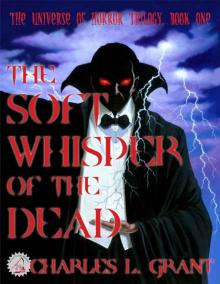 The Universe of Horror Volume 1: The Soft Whisper of the Dead (Neccon Classic Horror)
The Universe of Horror Volume 1: The Soft Whisper of the Dead (Neccon Classic Horror)![[Oxrun Station] Dialing The Wind Read online](http://i1.bookreadfree.com/i/03/19/oxrun_station_dialing_the_wind_preview.jpg) [Oxrun Station] Dialing The Wind
[Oxrun Station] Dialing The Wind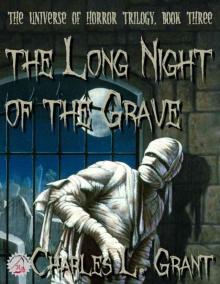 The Universe of Horror Volume 3: The Long Night of the Grave (Neccon Classic Horror)
The Universe of Horror Volume 3: The Long Night of the Grave (Neccon Classic Horror)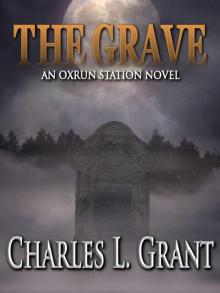 The Grave - An Oxrun Station Novel (Oxrun Station Novels)
The Grave - An Oxrun Station Novel (Oxrun Station Novels)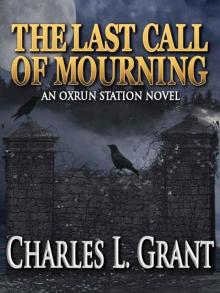 The Last Call of Mourning - An Oxrun Station Novel (Oxrun Station Novels)
The Last Call of Mourning - An Oxrun Station Novel (Oxrun Station Novels)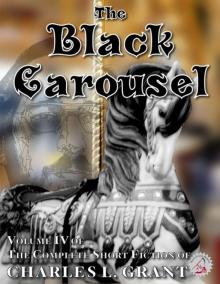 The Complete Short Fiction of Charles L. Grant, Volume IV: The Black Carousel
The Complete Short Fiction of Charles L. Grant, Volume IV: The Black Carousel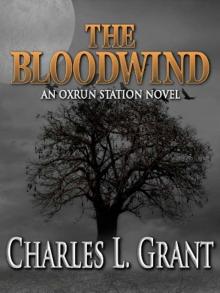 The Bloodwind - An Oxrun Station Novel (Oxrun Station Novels)
The Bloodwind - An Oxrun Station Novel (Oxrun Station Novels)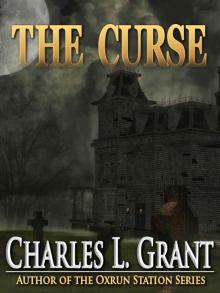 The Curse
The Curse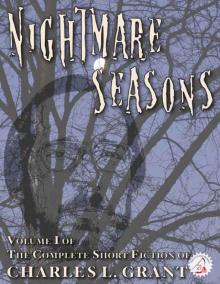 The Complete Short Fiction of Charles L. Grant Volume 1: Nightmare Seasons (Necon Classic Horror)
The Complete Short Fiction of Charles L. Grant Volume 1: Nightmare Seasons (Necon Classic Horror)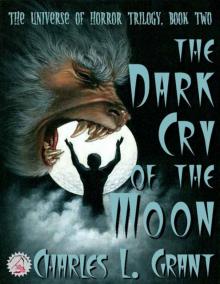 The Universe of Horror Volume 2: The Dark Cry of the Moon (Neccon Classic Horror)
The Universe of Horror Volume 2: The Dark Cry of the Moon (Neccon Classic Horror)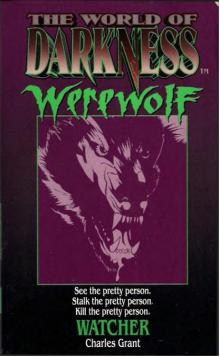 Watcher: Based on the Apocalypse (World of Darkness : Werewolf)
Watcher: Based on the Apocalypse (World of Darkness : Werewolf)![[Oxrun Station] The Bloodwind Read online](http://i1.bookreadfree.com/i/03/25/oxrun_station_the_bloodwind_preview.jpg) [Oxrun Station] The Bloodwind
[Oxrun Station] The Bloodwind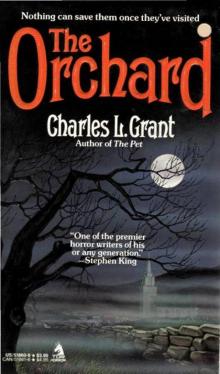 The Orchard
The Orchard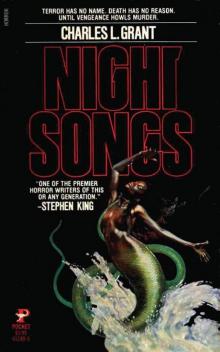 Night Songs
Night Songs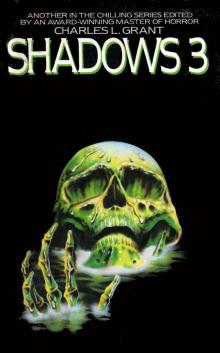 Shadows 3
Shadows 3![Symphony - [Millennium Quartet 01] Read online](http://i1.bookreadfree.com/i1/04/02/symphony_-_millennium_quartet_01_preview.jpg) Symphony - [Millennium Quartet 01]
Symphony - [Millennium Quartet 01]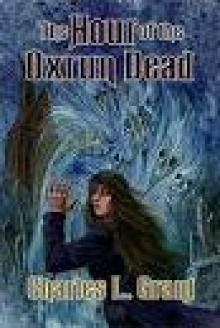 The Hour of the Oxrun Dead (Necon Classic Horror)
The Hour of the Oxrun Dead (Necon Classic Horror)![In the Mood - [Millennium Quartet 02] Read online](http://i1.bookreadfree.com/i1/03/31/in_the_mood_-_millennium_quartet_02_preview.jpg) In the Mood - [Millennium Quartet 02]
In the Mood - [Millennium Quartet 02]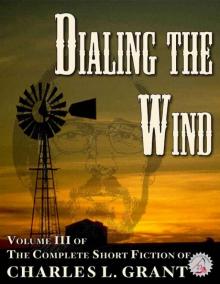 The Complete Short Fiction of Charles L. Grant Volume 3: Dialing the Wind (Neccon Classic Horror)
The Complete Short Fiction of Charles L. Grant Volume 3: Dialing the Wind (Neccon Classic Horror)![[Oxrun Station] The Last Call of Mourning Read online](http://i1.bookreadfree.com/i2/04/05/oxrun_station_the_last_call_of_mourning_preview.jpg) [Oxrun Station] The Last Call of Mourning
[Oxrun Station] The Last Call of Mourning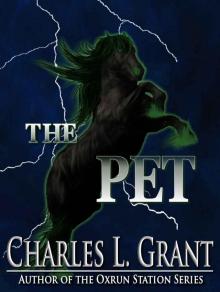 The Pet
The Pet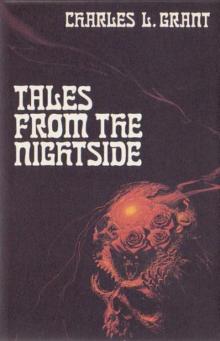 Tales from the Nightside
Tales from the Nightside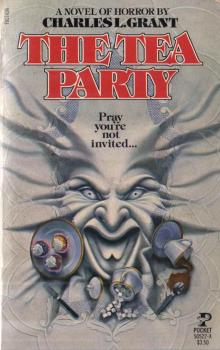 The Tea Party - A Novel of Horror
The Tea Party - A Novel of Horror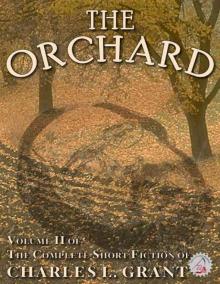 The Complete Short Fiction of Charles L. Grant Volume 2: The Orchard (Necon Classic Horror)
The Complete Short Fiction of Charles L. Grant Volume 2: The Orchard (Necon Classic Horror) Whirlwind
Whirlwind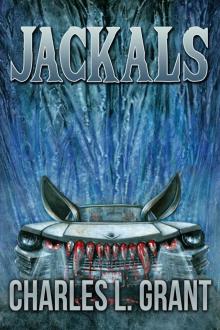 Jackals
Jackals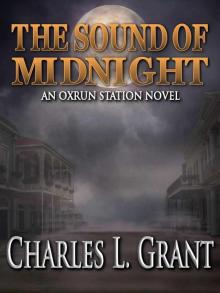 The Sound of Midnight - An Oxrun Station Novel
The Sound of Midnight - An Oxrun Station Novel